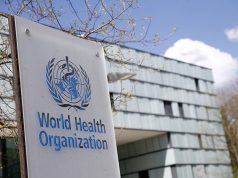MANILA – Health Secretary Dr. Paulyn Ubial advised the public to take precautions against bird flu following news reports of an avian flu outbreak among chickens, ducks and quails in several poultry farms in Pampanga province, which the Department of Agriculture (DA) is investigating.
“We are advising the public to take flu precautions – cover your mouth and nose when sneezing and coughing, wash your hands often, take plenty of water and juices, have enough rest and sleep,” Ubial said.
She also advised people to avoid getting near wild birds or going to farms with fowls.
“If you have flu symptoms that last longer than three days or feel very weak, see a doctor or go to the nearest hospital to test if it’s bird flu,” the health chief said FRiday.
Vietnam and Hong Kong have had poultry-to-human infections, she said, adding that “cross infection to humans has been minimal but can be fatal”.
Ubial said a team of epidemiologists has been dispatched to assist the DA in looking into the outbreak. The department has also alerted hospitals in Pampanga to report possible cases, she said, assuring the public that the DOH has enough anti-flu medications and commodities should regional health offices and hospitals need them.
According to the World Health Organization (WHO), birds are the natural hosts of avian influenza viruses. Humans, however, could acquire the viruses through direct contact with infected animals or contaminated environments. Nonetheless, WHO noted that human infections do not result in transmission of viruses between people.
“For avian influenza viruses, the primary risk factor for human infection appears to be direct or indirect exposure to infected live or dead poultry or contaminated environments, such as live bird markets. Slaughtering, de-feathering, handling carcasses of infected poultry, and preparing poultry for consumption, especially in household settings, are also likely to be risk factors,” the WHO said in its website.
It said avian influenza infections in humans may cause diseases ranging from mild conjunctivitis to severe pneumonia and even death.
“There is no evidence to suggest that the A(H5), A(H7N9) or other avian influenza viruses can be transmitted to humans through properly prepared poultry or eggs,” it said. “A few influenza A(H5N1) human cases have been linked to consumption of dishes made with raw, contaminated poultry blood.”
Controlling the circulation of avian influenza viruses in poultry is essential to reducing the risk of human infection, it said.










